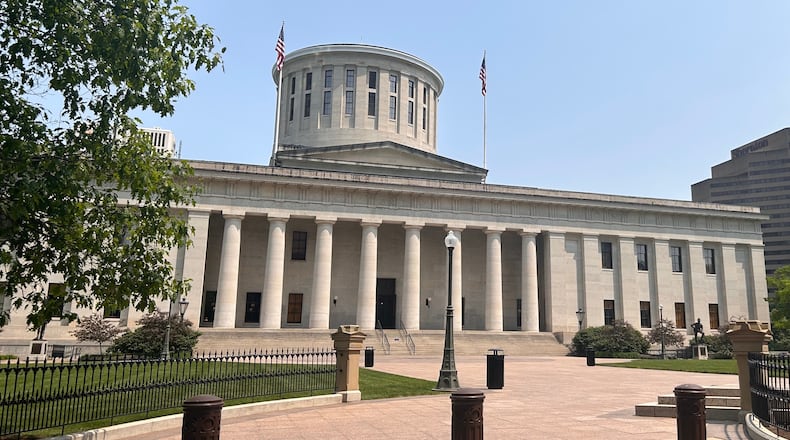“Our coalition continues to expand for one simple reason,” O’Connor said. “People of all political persuasions hate gerrymandering because it is fundamentally unfair and it only helps elite political insiders maintain power at the expense of the interests of everyday citizens.”
At the time of reporting, there is no organized campaign competing against Citizens Not Politicians, just three months away from election day on Nov. 5, despite strong opposition from Ohio Gov. Mike DeWine, the majority of state and federal lawmakers, and a broad slate of statewide officials.
Republicans critical of the amendment were quick to point out that much of the campaigns’ contributions came directly from out-of-state, progressive dark money groups.
“Voters beware: Ohio’s redistricting ballot initiative is bankrolled by millions in FOREIGN DARK MONEY,” Senate Majority Leader Rob McColley, R-Napoleon, said on X shortly after the campaign’s contributions were made public.
Citizens Not Politicians spokesperson Chris Davey promised this news outlet that the campaign “has not and will not accept any contributions from foreign nationals.”
Otherwise, Davey framed the financial support as a direct response to Ohio politicians’ actions.
The most prominent dark money contributor to the campaign was Washington, D.C.’s Sixteen Thirty Fund, which donated $6 million. Similar progressive organizations also made a splash, including Virginia’s Article IV ($3 million); D.C.’s Our American Future Foundation ($2.5 million); California’s Tides Foundation ($2 million) and Massachusetts’ Movement Voter Project ($1 million).
The campaign also has drawn substantial support from more well-known national contributors, including the ACLU ($1.5 million) and the National Education Association ($1 million).
In Ohio, individuals and organizations put in $3.6 million, which accounts for about 15.7% of the campaign’s total contributions.
Just under $75,000 of that came from over 300 individual contributions, but the state’s cumulative sum is heavily buoyed by organizational donations, including $1.6 million from the Ohio Education Association, $1.5 million from the Ohio Progressive Collaborative; and considerable donations from the Ohio Organizing Collaborative and the Ohio AFL-CIO union.
Campaign finance forms also show that Citizens Not Politicians booked about $16 million in advertisements ahead of Election Day. Much of its other expenditures went toward voter outreach or campaign payroll.
If a simple majority of voters approve it, November’s amendment will do away with the state’s redistricting process and install a 15-member panel of five Republicans, five Democrats and five independents to draw the state’s legislative and congressional maps. The amendment proposes slightly different map drawing rules than current law and promises to bar politicians, or anyone connected to politicians, from the table.
Note: This is a developing story and may be updated as more information becomes available.
For more stories like this, sign up for our Ohio Politics newsletter. It’s free, curated, and delivered straight to your inbox every Thursday evening.
Avery Kreemer can be reached at 614-981-1422, on X, via email, or you can drop him a comment/tip with the survey below.
About the Author

